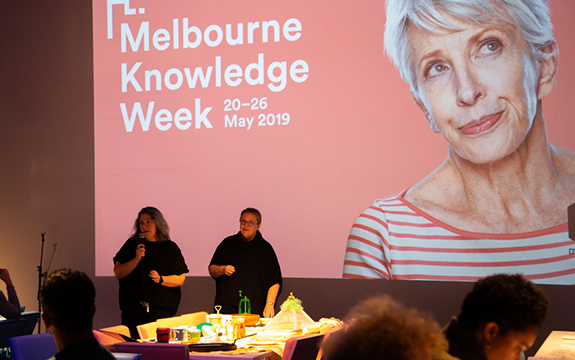
Bridgette Engeler (left) and Kirsten Day hosting a workshop at Melbourne Knowledge Week | Image: the Bureau
Design academics at the Smart Cities Research Institute hosted multiple events and activations at Melbourne Knowledge Week (MKW) this year.
Responding to the MKW brief asking "So what if…?", one Swinburne response was to create a game scenario exploring the impact of our actions in regards to sustainability.
Led by Course Director of Master of Design, Bridgette Engeler, and Course Director of Interior Architecture, Dr Kirsten Day in partnership with a team of designers and developers at Readify, a Telstra agency and the City of Melbourne - the team created ConseQuest.
"Our first project for MKW was a ConseQuest game or 'consequence generator', that asks 'So what if…?' and links to the MKW theme. We looked at sustainability issues that are an important focus for the team at the Smart Cities Research Institute," says Dr Day.
"By looking at what happens when someone throws a cigarette butt onto the street and how it doesn't biodegrade, we imagined a war games scenario where one action or decision triggers a series of consequences," she says.
"We considered network mapping and the places a cigarette butt ends up in the environment - in a bin, drain, or placed into a bottle or tin. We also looked at plastics, fast fashion and electronic devices and how they're recycled and disposed of. We looked at how we design objects with this in mind," she explains.
Dr Day and Ms Engeler wrote the content and Readify created the animation. The project was commissioned by the City of Melbourne.
"Readify were integral to the project and suggested we develop a game to engage people to make it fun," says Dr Day.
From a MKW podium people chose the game they wanted to play on a large screen. A 'Ninja Chick' game character took them on a cigarette butt, fast fashion, electronic device or plastic object journey in a 2-minute game sequence. Network mapping of game scenarios linked to QR codes gave access to scenario information.
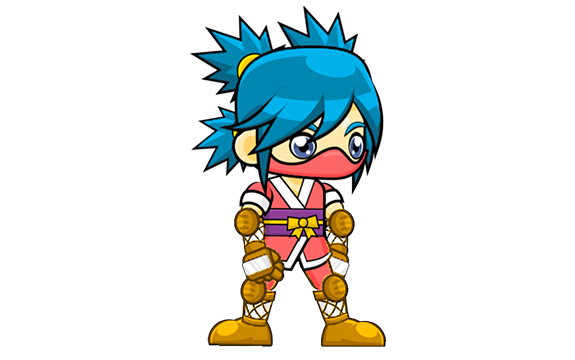
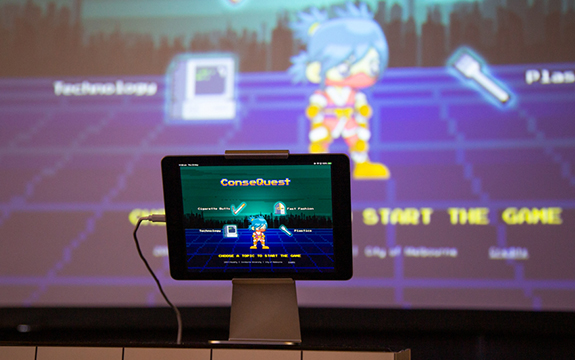
The Ninja Chick game character developed by Readify
From digital games to the not-so-humble kitchen. Swinburne academics – Dr Day, Ms Engeler, Professor Mark Taylor, Chair of Architectural and Industrial Design and Jeni Paay, Associate Professor in Interaction Design – showed the kitchen as a cultural space in MKW Kitchen Narratives (Towards Melbourne 02050), an exhibition and panel discussion on society's obsession with the kitchen and its representation in film, TV and advertising.
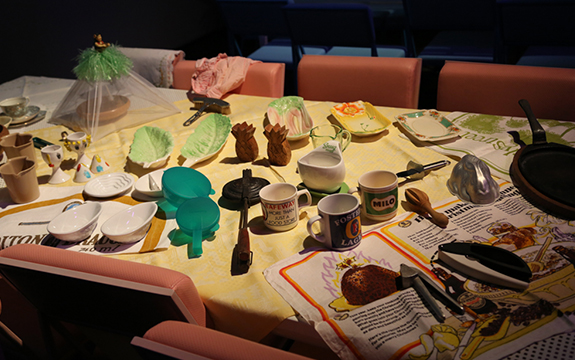
Kitchen table detail from MKW Kitchen Narratives exhibition, photography by the Bureau
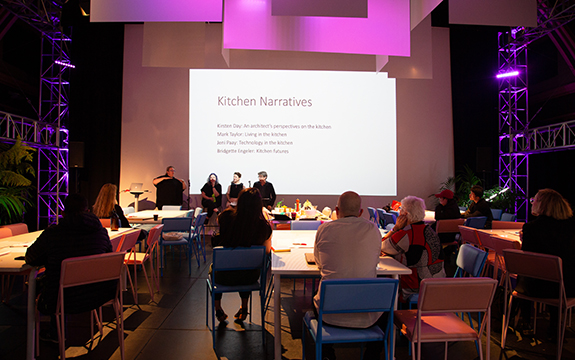
MKW Kitchen Narratives panel discussion
A panel discussion titled, Re-thinking high-density residential design: Home, work, wellness, led by Dr Day and architectural academic Dr Isun Kazerani shared perspectives on community planning, development and the wellness sector and discussed the dynamics of high-density residential development and community shared spaces.
Panellists Dr Marjan Hajjari, Delivery Coordinator, Jobs, Precincts and Regions for the Victorian Government; Abbie Freestone, Head of Community at Assemble and Matt Strickland from Premium Fitness discussed high-density living demands, planning policies, design guidelines, community development and rethinking strategies in design, planning and development for wellbeing.
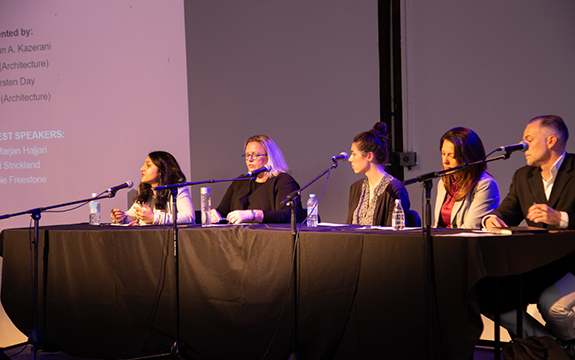
Panellists discussing high density residential design
The Melbourne 02050: Futures workshop asserted Melbourne as the 2050 world foodie capital where "robo-staff" wait on tables and footy games are won or lost in augmented reality. Participants questioned this as either a utopian urban dream or dystopian disaster.






